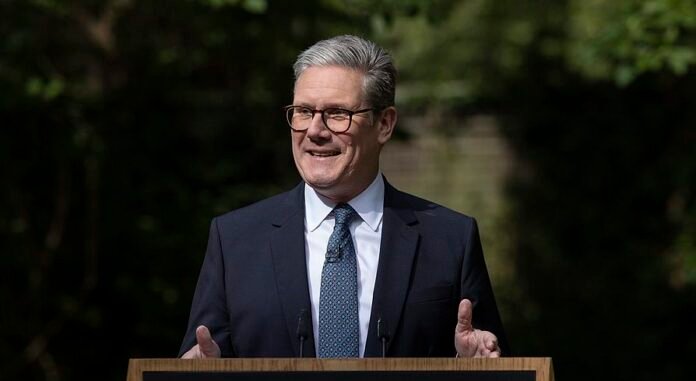Keir Starmer backs Supreme Court’s ‘adult female’ ruling, igniting fresh fire in the gender identity debate
Prime Minister Keir Starmer has sparked fresh controversy after commenting on the Supreme Court’s pivotal ruling, which redefines the legal understanding of a woman. The decision, hailed by some as a much-needed clarification, has left the nation divided. While Starmer said he “welcomed” the court’s judgment, the implications of his remarks are sure to stir up both support and backlash.
The ruling, handed down earlier this week, has been the subject of intense debate across the political and social spectrums. For many, the clarity provided by the court offers a solid foundation upon which policies can be built. However, Starmer’s decision not to repeat his earlier position that “trans women are women” has raised eyebrows. Instead, the Prime Minister firmly stated, “A woman is an adult female – the court has made that absolutely clear.”
Speaking exclusively to ITV News, Sir Keir Starmer appeared confident in his stance, saying, “I actually welcome the judgment because I think it gives real clarity.” His comments suggest a shift in how the government will navigate the complexities surrounding gender and its legal definition in the future. According to Starmer, the ruling will now allow those responsible for drafting guidelines to have clear parameters in place, ensuring there is no ambiguity in their policies.
Yet, the Prime Minister’s refusal to echo his past support for transgender inclusivity suggests that his position on the issue has evolved. In his earlier statements, Starmer expressed a commitment to trans rights, asserting that “trans women are women”. Now, however, the PM appears to accept the court’s narrower definition, an adjustment that may alienate some of his progressive supporters while appealing to more conservative factions.
The ruling itself focuses specifically on the legal recognition of gender, stating that a woman, from a legal standpoint, is “an adult female.” This decision, which comes in the wake of prolonged legal challenges and societal discourse on gender identity, sets a definitive legal standard that will have far-reaching consequences across various sectors, including healthcare, education, and employment.
Embed from Getty ImagesWhile many view the ruling as a victory for clarity, others argue that it fails to accommodate the needs and rights of transgender individuals. Starmer has indicated that the next steps involve ensuring that government guidance and future policies are aligned with the Supreme Court’s ruling. He believes that this will prevent further confusion in official guidelines and provide a concrete framework for addressing gender issues moving forward.
As the nation continues to digest the implications of the ruling, Starmer’s comments signal the beginning of a potentially transformative shift in how the government approaches gender identity. However, with such a charged issue, it is clear that the road ahead will be filled with both legal challenges and fierce public debate.
For now, the debate remains unsettled. Starmer has called for unity and clarity, but the judgment has only added fuel to the fire, making it all the more likely that gender identity will remain at the forefront of political discourse in the months to come.
